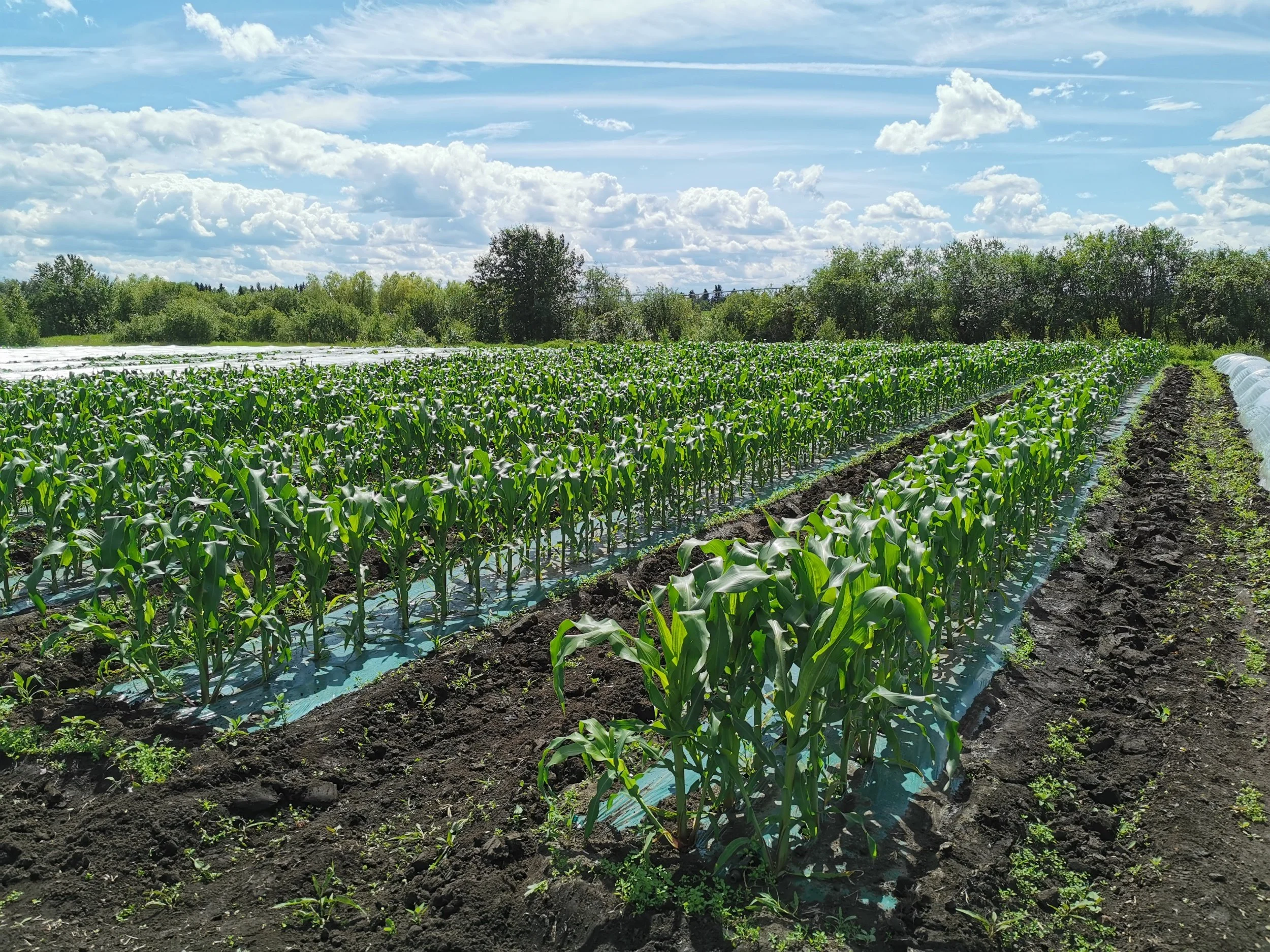Soil Love!
We've been farming for 17 years and along the way we’ve been humbled and also blown away by soil! In the wrong conditions, soil will degrade quickly, and treated well it can perform miracles and even recover from disaster.
Over the years in response to messages from the soil (yes, the soil speaks to us - through weeds, health of plants and even through its colour!) we’ve implemented some major changes on our farm.
The first change took over four years to implement and it is the construction of permanent, no-till beds. We now have 120 of them. We use a method of creating raised pathways and then deep mulching the beds in between the pathways. We use a mulch made of well - composted cow manure. The pathways are then planted in clover to keep the ground covered and less weedy. We mow the pathways regularly (in reality it’s our son that does the mowing!). The beds have been working very well for us. We have less weed pressure, better yields and healthier crops overall as well as a more enjoyable environment to work in.
Below you can see the no - till beds in action with clover pathways flowering in between.
The other technique we've employed to improve soil on our farm is mineral balancing. This is based on the methodology espoused by William Albrecht in the 40s and 50s as he observed the damaging effects of chemicalization of agriculture following WWII.
In order to apply the minerals to our fields Jenny's dad took a trip across the mountains and oceans to a gulf island where an old old old lime spreader was rusting into oblivion. We got it to our farm and removed the moss and oiled it up, and are hoping it hangs on until we’re done this particular soil project!
The mineral balancing was originally meant to be applied to the fields that have not been transformed to no-till, but we’re so happy with the results we wanted to trial it on our no-till beds as well. We’ve also seen that the high organic matter of the no-till required some balancing, and the minerals have helped them.
Below you can see corn in our regular beds. We use low tunnels to ensure we get a crop, and this is why it is not in the no-till.



